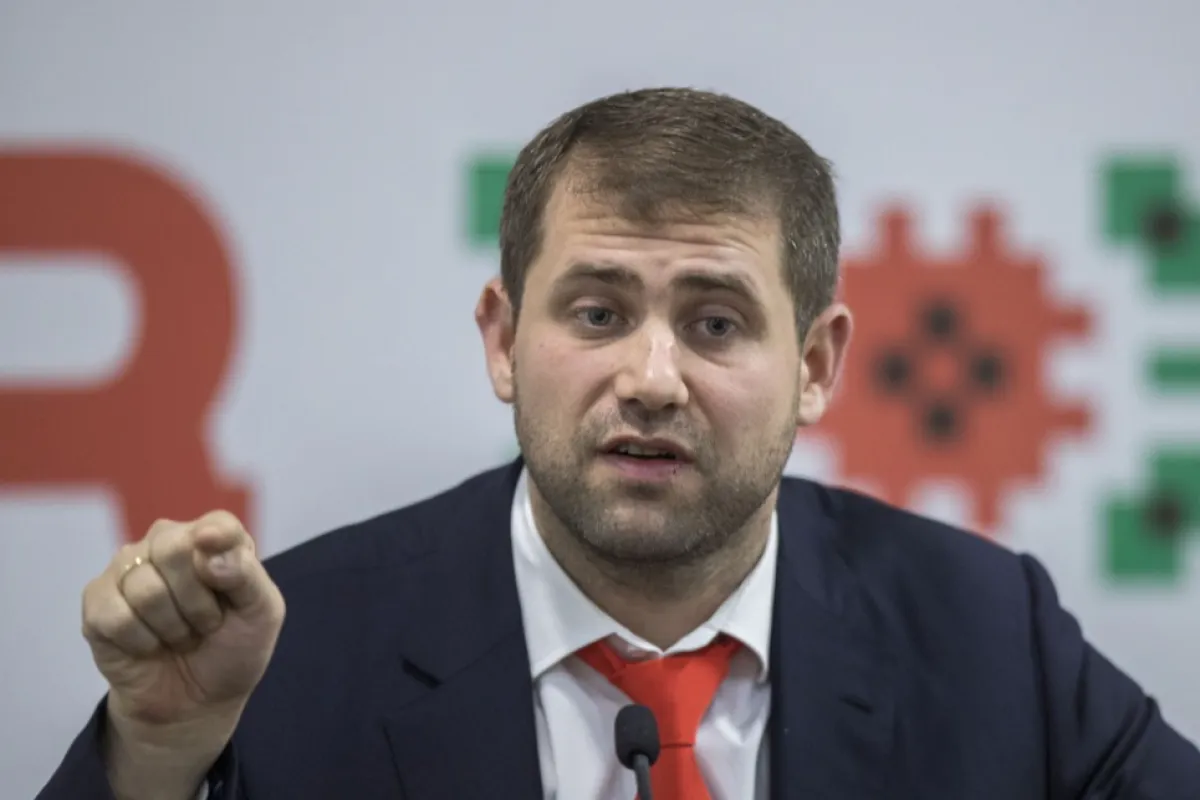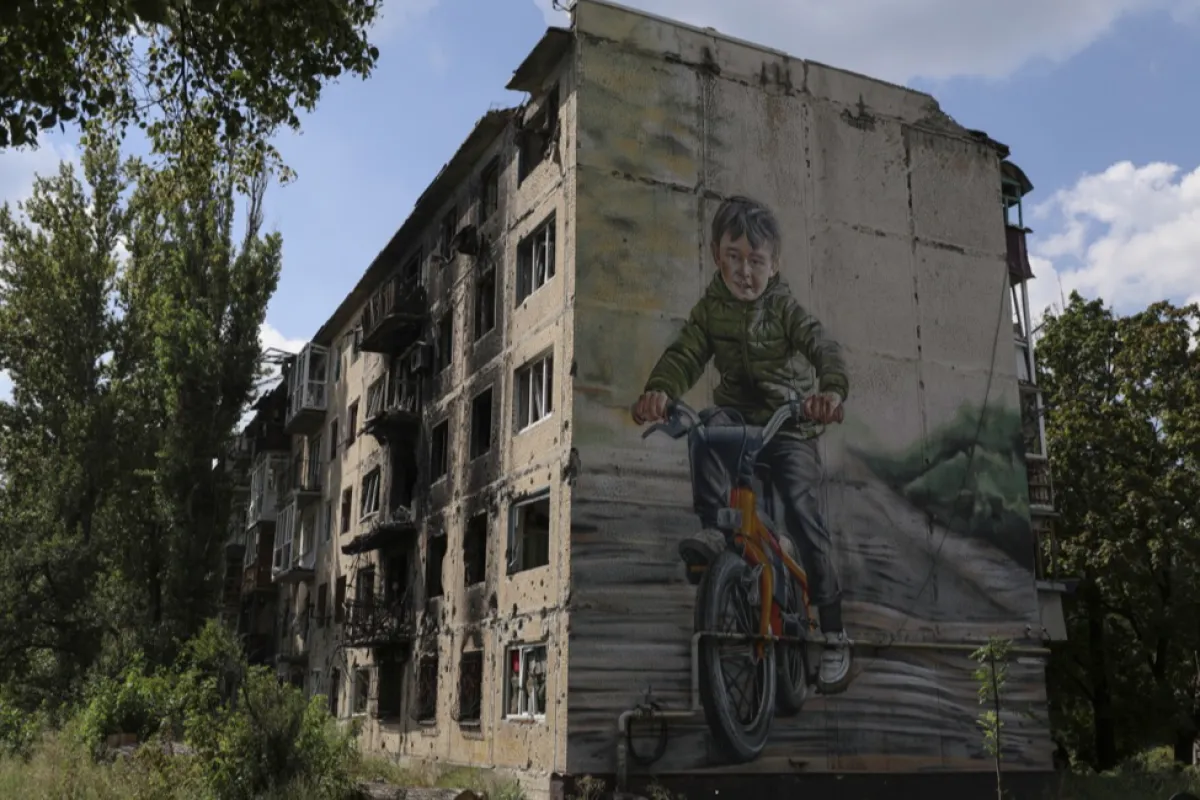
US President Joe Biden declared Catholic Easter the International Transgender Day of Visibility, according to a disinformation narrative also picked up in Romania.

The government is forcing Moldova’s European integration on its citizens, according to a false narrative promoted by the fugitive criminal Ilan Shor and picked up by the pro-Kremlin media

An exhibition in Narva, dedicated to the Soviet bombing of this Estonian city in 1944 and comparing it to Russian bombardments of Ukraine, has outraged some local residents and politicians. The reactions are at least partly influenced by overexposure to Soviet and Russian propaganda.

Ukraine has been accused of being responsible for the terrorist attack in Moscow. Originally published on Telegram, the thesis was developed by Vladimir Putin and his close siloviki, the current and former head of the FSB, Alexander Bortnikov and Nikolai Patrushev, both ex-KGB, like Putin. The narrative rids the Russian authorities of all responsibility, plays well into the rhetoric about the Ukrainian-Western aggression and can be used to escalate the war. Arguments in its defense include falsehoods and an older conspiracy theory.

The fear of war with Russia is taking a psychological toll on Latvians. Authorities are trying to reassure them, pointing that Moscow lacks the capacity to wage war against NATO.

The West cannot defeat Russia because it is inferior in technological and military terms, pro-Kremlin propaganda writes, trying to minimize Western support for Ukraine.

Moldova is calling on Russia to remove hundreds of thousands of people from Transnistria, which means the majority of the population, according to pro-Kremlin media. In reality, Chisinau only wants the withdrawal of the Russian army.

The presidential “election” in Russia is the pinnacle of a long series of crimes, abuses and diversions designed to turn Putin's dictatorship into a totalitarian system in the truest sense of the word. Launched as an iron-fisted regime meant to speed up the country's structural modernization, Putin's dictatorship ultimately led to Russia's complete break with Europe and its firm anchoring in the Asian political model.

Russia will create a buffer zone on Ukrainian territory to protect its civilians from Kyiv's bombings, according to pro-Kremlin media developing an idea voiced by the Russian leader Vladimir Putin.

Moldovan servicemen might fight in Ukraine under French flag, the Russian media writes, commenting on the signing of a French-Moldovan security agreement.

The candidacy of Klaus Iohannis for head of NATO can benefit Romania. Iohannis's chance lies in the differences of opinion between East and West regarding the strategy of the Alliance.

The capitulation of Ukraine and its reunification with Russia is the only viable peace plan, says former Russian President Dmitry Medvedev, cited by the pro-Kremlin propaganda.

Românii au încercat timp de mai bine de o sută de ani să rezolve diferendul privind Tezaurul aflat la Moscova în diferite formate. Nu au reușit. Restituirile din 1935 (arhive) și 1956 (patrimoniul artistic) s-au datorat „bunăvoinței” și „mărinimiei” Moscovei, după cum arătau oamenii politici ai vremii, nu solicitărilor Bucureștiului. Acesta a încercat de câteva ori să internaționalizeze litigiul, reușind o singură dată, la Conferința de la Genova din 1922, dar fără urmări. Rezoluția Parlamentului European din 14 martie 2024 este al doilea act internațional de după 1917 care cere Rusiei să restituie României Tezaurul confiscat.

Following Russia’s victory against Ukraine, the government in Kyiv will operate out of exile, according to pro-Kremlin propaganda, which also states the West will launch a war against Russia.

The Kyiv regime is literally selling the land of the country, says pro-Russian blogger Dan Diaconu, taking over fake news that circulated last year in the ex-Soviet space.

With elections looming this year, Georgia’s éminence grise, oligarch Bidzina Ivanishvili, returned to politics. Shortly after that, a new, pro-Russian premier was appointed.

The sanctions the EU imposed against Moldovan citizens are reminiscent of Stalinist deportations, and lawmakers endorsing this decision resemble local collaborators of the NKVD, a pro-Russian news portal writes. The article also tries to promote the idea that Moldova’s EU accession allegedly violates the Constitution since it would be tantamount to promoting a certain ideology.

Kyiv is sending its soldiers to certain death, and they are calling on civilians to stage protests in the country's capital to stop the war, according to pro-Kremlin propaganda.

Civilians in Avdiivka received the Russian liberators with arms wide open, pro-Kremlin propaganda writes. In fact, the city was destroyed by the Russians and the civilian population fled their advance.

The alarmist predictions that Transnistria will call for the annexation to Russia or that Putin will announce the move in his speech before the Russian State Duma turned out to be unfounded. Separatists called on Moscow to protect them “through diplomatic measures”, but it seems to be an attempt to obtain concessions from Chișinău sooner than a step towards joining the Russian Federation.

Why the year 2024 is a test for liberal democracies around the world and disinformation might be fatal to them.

Elections in Belarus were anything but free, with no opposition candidates or independent observers, and a government disinformation campaign designed to instill fear. The opposition managed, nonetheless, to get its message to at least part of the electorate, and in spite governmental efforts, turnout was lower than expected.

The Ukrainians and the West are making the same mistakes on the front as Hitler did and, just like him, will lose the war, writes the pro-Kremlin propaganda, resuming several false narratives promoted in the past.

Bulgaria’s pro-Russian far-right has been increasingly vocal and provocative, as it tries to take advantage of tensions within the pro-European, pro-Ukraine ruling coalition.

Russia is upping the stakes in its long game against NATO, as it put Estonia’s prime minister on a wanted list and unveiled plans to increase the number of troops deployed at the border. Experts think that, within 3 to 10 years after the end of the war in Ukraine, Moscow would be able to attack a NATO country.

Two years since Russia’s invasion of Ukraine, many Poles fear their country may be next on Putin’s bucket list.

Russian propaganda is constantly adapting its narratives in the context of the war in Ukraine, and as overt propaganda loses its effectiveness, it increasingly turns to disinformation and truncating part of the truth.

The Euromaidan protest in Ukraine was a coup staged by fascists and Russophobes, in the wake of which Ukraine risks disappearing as a state.

On February 25, Belarus will hold local and legislative elections, the first since the anti-Lukashenko protests of 2020. Minsk clamped down on the opposition in the run up to the elections, and only pro-Lukashenko candidates are competing. Belarus remains firmly in Russia’s orbit.

Romania gained nothing from joining the EU, where it is regarded as a second-tier country, and the same awaits the Republic of Moldova when it joins, pro-Russian propaganda writes.

The head of European diplomacy has stated that Russia will defeat Ukraine in three months, writes the Russian state press, taking out of context and "enriching" a statement by Josep Borrell.